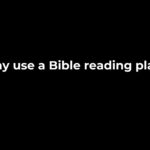There is a very interesting case working its way through the Canadian legal system and schedule for submission to the Supreme Court in November 2017. The case is known as Wall v. Judicial Committee of the Highwood Congregation of Jehovah’s Witnesses, and it concerns the question of church discipline.
Does the court have the right to review the actions and decisions of church councils?
The surprising answer to that question is YES, irrespective of Wall v. Judicial Committee. The courts have always understood themselves as having this right (though the scope of this right is currently unclear), but until this point they have generally limited themselves to the issue of process. What’s new about Wall v. Judicial Committee is that the courts will be reviewing the economic impact of church discipline on the disciplined member, separate and apart from issues relating to procedural fairness.
While we wait to see how the courts rule on the matter of economic impact, this would be a good time for churches to remember that when they conduct formal church discipline, they are required to abide by the principles of natural justice. If they don’t, they may find their decisions being reviewed and overturned by the courts.
The relevant principles of natural justice are as follows:
Notice
For a church discipline process to be considered legal and fair it must include the giving of adequate notice to all involved parties. This should be done in writing and should include all formal accusations, submitted documents, relevant covenants and requirements along with the dates for all scheduled inquiries and hearings. A minimum of 14 days should be allowed from reception of notice to formal inquiry.
By way of resource and reference, our FBC, Orillia operating by-law on this matter reads as follows:
The Individual shall be given a minimum fourteen (14) days written notice by registered and regular mail at his or her last known address (which period of time shall include the date of mailing but shall exclude the date of the hearing), of the date, time and place at which the hearing will be held. The notice shall briefly explain the nature of the allegation and advise the Individual that the allegation will be considered by the Board at the hearing. The Individual shall be entitled to attend before the hearing to listen to the details of the allegation made and to respond thereto. [1]
Impartiality
Most church discipline protocols assume the existence of or special creation of a formal Board of Inquiry. In some cases the Board of Elders is assumed as the default Board of Inquiry, in other cases the Board will designate particular members of the Board and/or Pastoral Staff to serve on a specially created Board of Inquiry. In either case the principle of impartiality requires that no member of that Board of Inquiry have a particular interest in the matter under discussion. He or she cannot be a witness to or a victim of the alleged misconduct. In cases where the member is alleged to have done something or said something against the Pastor, the Pastor cannot serve on or be the Moderator of the Board of Inquiry.
By way of resource and reference, our operating by-law on this matter reads as follows:
An Officer who is a Elected Elder shall have the same duty to disclose such Officer’s interest in a material contract or transaction or proposed material contract or transaction with the Corporation, as is imposed upon Elected Elders pursuant to the provisions of the Act and the By-laws set out in Section 3.10. [2]
Self Defence
An accused individual has the right to speak and to offer evidence in his or her own defence. Church by-laws should indicate clearly whether or not the accused individual is permitted to call witnesses and what guidelines there are for the submission of testimony and evidence.
By way of resource and reference, our FBC, Orillia operating by-law on this matter reads as follows:
The Individual shall be entitled to be accompanied at the hearing by two Members who may act as observers during the hearing but who shall not be entitled to participate thereat.
Both the Individual and the Board may call any witnesses or evidence that is relevant to the allegation being made. No party to the hearing shall be represented by legal counsel. However, either the Individual or the Board may require that the Church, at the expense of the Church, retain a lawyer or other person with experience in the law of evidence to act as an adjudicator to determine the admissibility of evidence presented before the hearing.
There shall be an equal allocation of time for the presentation of evidence by both the Board and the Individual. The Board may designate a time limitation on the hearing, provided that such limitation is applied equally to the presentation of evidence by both the Board and the Individual and provided further that notice of such limitation of time is first given to the Individual at least three (3) hours before the hearing is required to end. [3]
Clear Explanation
Any decision or action taken by a duly called church tribunal must be clearly explained to the affected individual and to the membership at large. The connection between the stated beliefs and values of the congregation and the decisions rendered should be clear and comprehensible. The need to protect the dignity and potential repentance of the accused must be balanced with the need to maintain a transparent and ethical process.
By way of resource and reference, our FBC, Orillia operating by-law on this matter reads as follows:
Disciplinary action shall be determined and implemented with the intent of both protecting the integrity of the ministry of the Church and the name of the Lord in the community (Romans 2:24; 2Peter 2:2) and restoring the Individual into fellowship pursuant to Luke 17:3 and Galatians 6:1. The Board shall advise the Membership as appropriate of any disciplinary action taken.
No pronouncement on matters of Discipline by the Church shall be made unless given orally from a prepared text at a Members Meeting and only after careful and sober consideration has first been made by the Board to avoid, as much as possible, undue or unnecessary embarrassment to the Individual or other undue or unnecessary prejudicial consequences to either the Individual or to the Church as a whole. [4]
As Christians we want to do the right thing, the right way, for the right reasons. Church discipline is a good and helpful thing when it is done wisely and in accordance with the teaching of Scripture and the principles of natural justice. Done correctly it is an expression of loving concern for our brother or sister in Christ. Done incorrectly it exposes the church to the judgment and censor of the courts.
However the Wall v. Judicial Committee case turns out, now would be a very good time for churches in this country to review their policies and procedures with respect to church discipline.
SDG
Paul Carter
N.B. The Into The Word podcast featuring Pastor Paul Carter returns on October 16th. Listen to past episodes here.
N.B. This article is not intended as legal counsel and should not be interpreted or used as such.
N.B. For a summary of the Wall v. Judicial Committee case see this excellent article by Josh Tong.
[1] First Baptist Church, Orillia General Operating By-Law No. 2, 2.10.d
[2] First Baptist Church, Orillia General Operating By-Law No. 2, 6.08.a
[3] Ibid., 2.10.f,g,h
[4] Ibid., 2.10.k,n
















